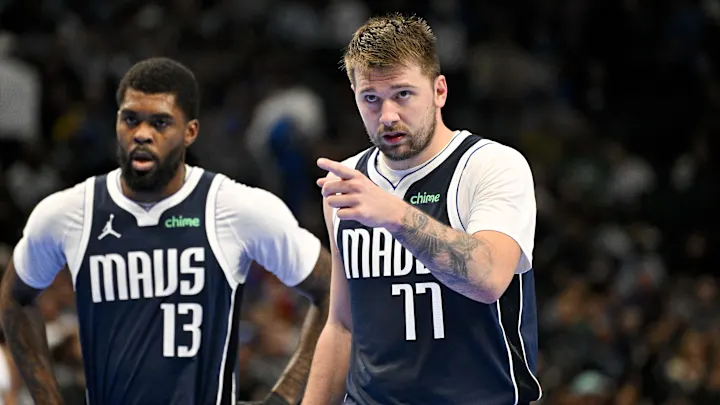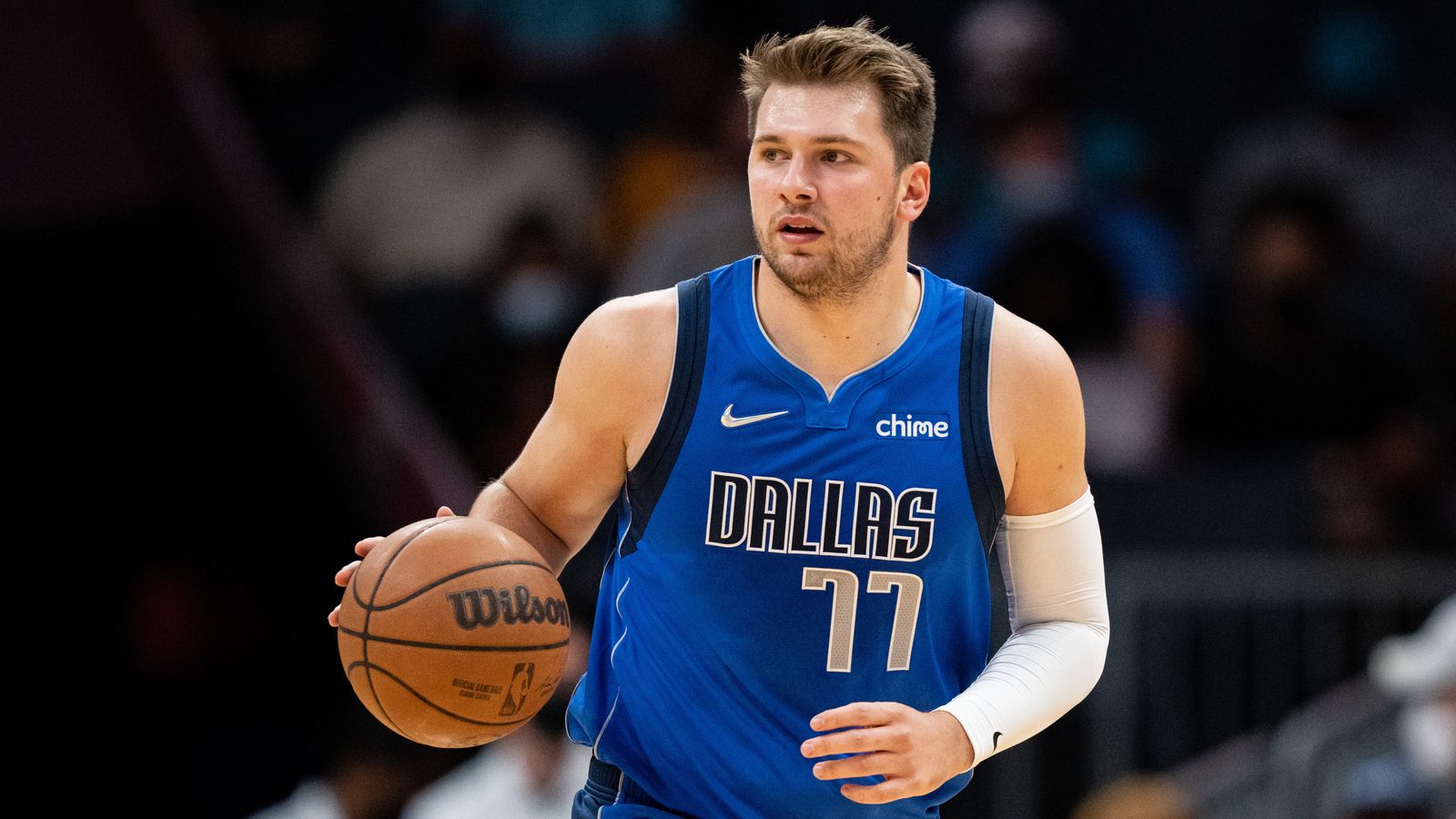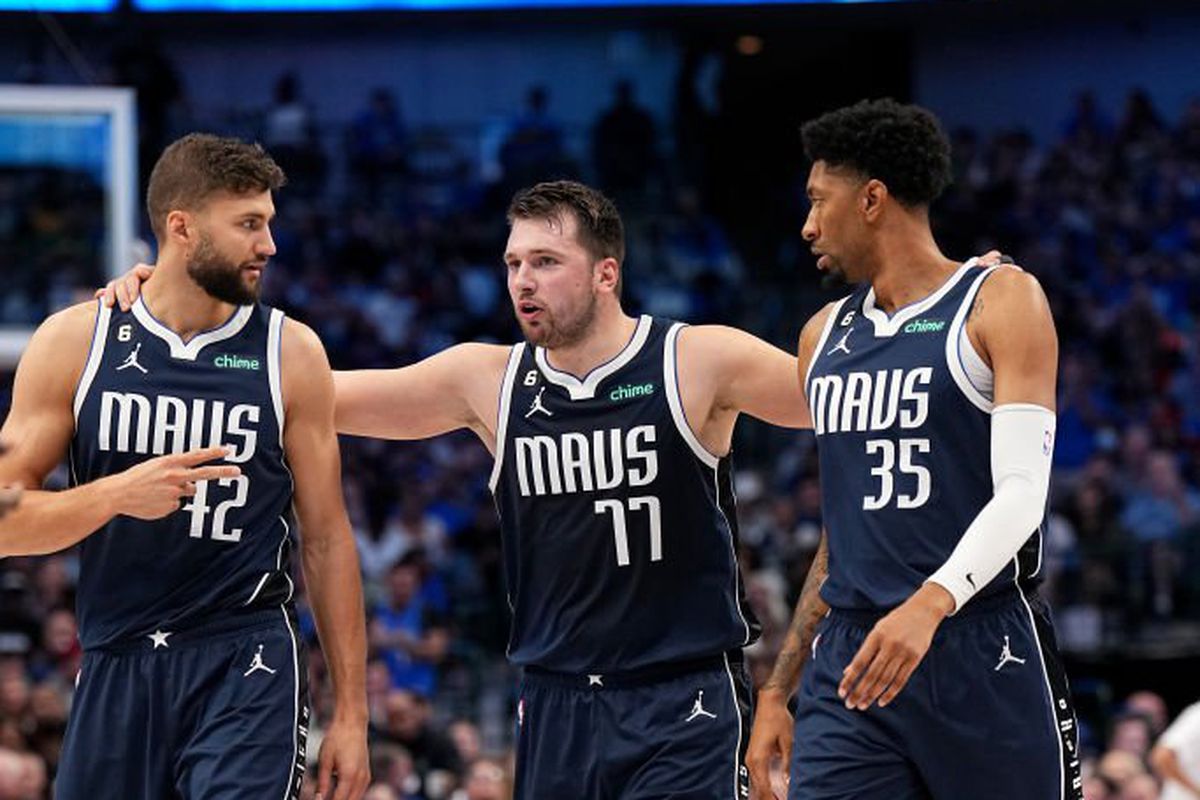
The Luka-less Dallas Mavericks Have Always Been a Tough Watch, But Something Has Changed
For the past few years, the Dallas Mavericks have been a team that lived and breathed through Luka Dončić. The 24-year-old Slovenian has been the focal point of the Mavericks’ offense and their identity. When Luka is healthy and on the court, the Mavs have been a dangerous team capable of beating anyone. However, when Luka has been sidelined—whether for injury or rest—the Mavericks have often looked like a shell of themselves. Without their superstar, Dallas has often struggled to maintain their competitive edge, relying too heavily on Luka’s individual brilliance to carry the team.
But this season, things are different. When Luka has been unavailable, the Mavericks have shown that they can still be competitive and even win without their star player. This shift has been subtle, but it’s clear: the Mavericks are beginning to find their identity as a team that doesn’t have to rely solely on Luka to succeed. They are evolving into a more well-rounded and balanced squad that can thrive even without their superstar on the floor.

The Luka-Dependent Mavericks: A Past Struggle
It’s impossible to overstate how much Luka Dončić has meant to the Mavericks since arriving in 2018. As one of the youngest players ever to become a franchise cornerstone, Luka has quickly cemented himself as one of the best players in the NBA. His ability to score from anywhere, his uncanny court vision, and his ice-cold clutch performances have turned him into an MVP-caliber player.
However, the problem with being so reliant on one player is that when he isn’t playing, the team can fall apart. In seasons where Luka has missed games due to injury, Dallas has often lacked a coherent offensive system. The ball movement has been stagnant, and the offensive sets have often revolved around other players attempting to fill Luka’s shoes—something that isn’t easy to do. The team’s success without Luka has been inconsistent, with the Mavericks’ offense becoming too predictable and easy to shut down when their superstar isn’t playing.
Luka’s defense has also been a work in progress, and while his offensive prowess often outshines his defensive shortcomings, it’s clear that the Mavericks’ defense has been an issue, particularly when Luka is absent. The team has lacked a secondary playmaker who could effectively run the offense, and there have been times when the Mavericks’ depth was exposed against better teams.
A New Era Without Luka: A Balanced Approach
This season, however, something has changed. The Mavericks are still Luka’s team, but they are showing signs of growing beyond his presence on the court. When Luka has been sidelined, the team has adjusted its style of play, and there has been a noticeable shift in both the offensive and defensive schemes. The Mavericks have found a way to stay competitive without Luka—something that wasn’t always the case in the past.
One of the most important developments has been the play of Kyrie Irving. While the superstar guard joined the Mavericks primarily to complement Luka, Irving has shown that he can step up and be the primary ball-handler when Luka isn’t available. Kyrie’s ability to run the offense, create for others, and score at will has allowed the team to function effectively without Luka on the court. Irving has thrived in the lead role, showing his ability to elevate his teammates and keep the Mavericks’ offense moving.
What has been particularly impressive is the level of team basketball the Mavericks have embraced in Luka’s absence. The offense has become more fluid and diversified. With Kyrie taking on more of a playmaking role, other players like Christian Wood, Josh Green, and Tim Hardaway Jr. have stepped up and contributed in meaningful ways. Wood, who has been a solid scoring option this season, has become a more consistent contributor when Luka is out, while Josh Green’s all-around game—especially his shooting and defense—has been key to the team’s success.
Tim Hardaway Jr., in particular, has benefited from having more responsibility and touches. Although Hardaway has always been streaky, his ability to knock down shots from beyond the arc has been crucial for Dallas. Without Luka demanding the attention of opposing defenses, Hardaway has had more open looks and has often been able to make the most of them.
The ball movement has improved in Luka’s absence, with the team creating more open shots and playing with a sense of selflessness. This fluidity is a sharp contrast to the previous seasons when the offense often stalled when Luka went out. Instead of relying on isolation ball or forcing shots, the Mavericks are now moving the ball more efficiently, looking for better shot selection, and making smarter plays.

Defensive Improvements
While the offense has been able to sustain itself without Luka, the biggest change has come on the defensive side of the ball. Traditionally, defense has been a weak point for the Mavericks. With Luka’s defensive inconsistency and limited contributions from the supporting cast in previous seasons, the Mavs were often outmatched on that end of the floor, especially against the league’s elite teams.
This season, however, the Mavericks have shown significant strides in their defensive efforts. Players like Dorian Finney-Smith and Reggie Bullock have been key in locking down opposing wing players, and the team as a whole has been much more disciplined in terms of rotations, help defense, and contesting shots. Even without Luka’s offensive contributions, the team has managed to stay competitive due to their renewed commitment to defense.
The Mavericks’ ability to limit transition opportunities, close out on shooters, and contest shots at the rim has helped keep games within reach, even when their offense wasn’t clicking. The defense has been a team effort, and the coaching staff, led by Jason Kidd, has instilled a more cohesive approach that works in Luka’s absence. With these defensive improvements, Dallas has shown that it can still win by playing a more complete game.
The Rise of Team Unity
Perhaps one of the most notable changes this season has been the rise of team unity. In the past, when Luka was sidelined, the Mavericks would often look disjointed, with players trying to do too much to fill his shoes. There was a lack of cohesion, and the team often seemed lost without their star player.
This year, however, the Mavericks have embraced a “next man up” mentality. Players have shown that they are ready to take on larger roles and contribute to the overall success of the team. The team has bought into a more collective effort, with players encouraging one another and stepping up when needed.
This sense of unity has been reflected in their play. Even when down by a few points, the Mavericks continue to fight and trust the system, which has allowed them to close out games with greater consistency. The newfound sense of optimism and shared responsibility has contributed to their success, and it’s clear that the Mavericks are growing into a more complete unit.
The Future for the Mavericks
As the Mavericks continue to develop this new identity, the future is brighter than ever. When Luka Dončić returns to full health, the Mavericks will have a team that not only revolves around him but also has the ability to function as a well-rounded squad. The balance between Luka and Kyrie Irving, along with contributions from players like Christian Wood and Tim Hardaway Jr., will give Dallas the flexibility to compete with any team in the NBA.
Moreover, the improvements in team defense will only serve the Mavericks well in the postseason. As they continue to build chemistry, the Mavericks will become a more dangerous team, capable of executing in multiple ways. When Luka is on the floor, the team can now lean on its defense and depth, knowing that they don’t have to rely solely on Luka’s heroics to win games.
The Dallas Mavericks have always been defined by Luka Dončić, but the team is evolving. They are no longer a one-man show. With the improvements in team basketball, defense, and overall cohesion, the Mavericks have shown that they are capable of competing at a high level, even without their star player. The future is promising for Dallas, and with Luka leading the charge, the team is poised for greatness in the years to come.

Conclusion
The Luka-less Dallas Mavericks are no longer a tough watch—they are a team that has found a way to thrive without their superstar. The blend of strong team defense, unselfish offense, and leadership from Kyrie Irving has allowed the Mavericks to maintain their competitive edge. This is a new era for Dallas, one where the team has proven they can succeed without relying solely on Luka Dončić. As the season progresses, the Mavericks will continue to evolve and build a more balanced identity, setting themselves up for success both now and in the future.

Leave a Reply